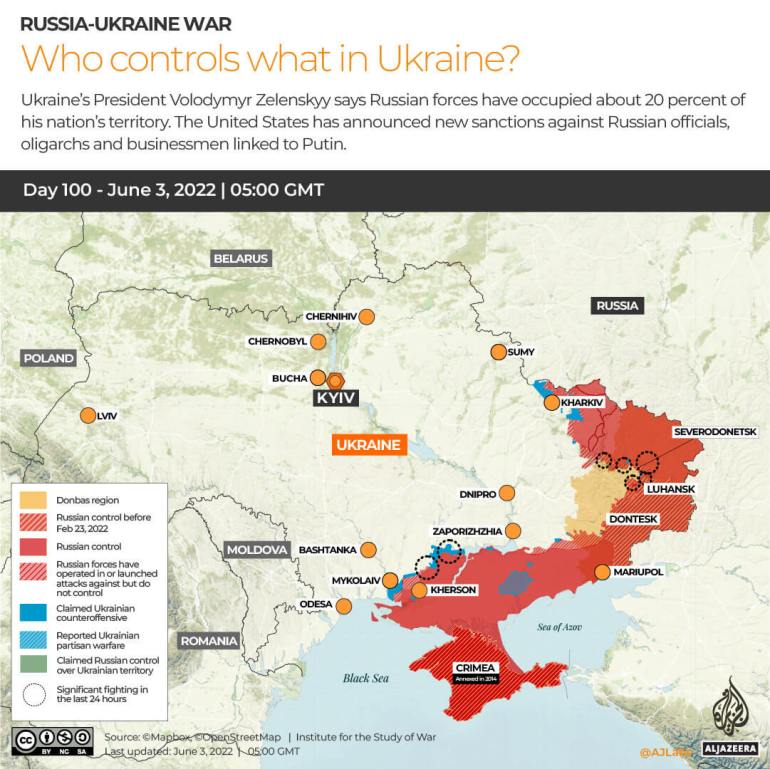Alexander Nevzorov and his wife became citizens of Ukraine after denouncing Russia’s war.
Published On 3 Jun 2022
Ukraine has granted citizenship to Alexander Nevzorov, a prominent Russian journalist and a Kremlin critic who fled Moscow with his wife after denouncing the Russian invasion of Ukraine.
A Moscow court ordered the arrest in absentia of Nevzorov, accusing him of spreading false information about what Moscow portrays as its “special military operation” in Ukraine. He and his wife fled Russia in March.
Anton Gerashchenko, an adviser to the Ukrainian interior minister, said authorities in the capital Kyiv had granted citizenship to Nevzorov and his wife, Lydia.
Nevzorov confirmed he received Ukrainian citizenship in a statement on Telegram messenger, in which he said Russia’s war was a crime and Ukraine its victim.
“I take the side of the victim. And I am damn grateful to those tormented, desperate, bloodied people of Ukraine who allowed me to take my place among them,” he said.

Russia launched an investigation against Nevzorov, whose YouTube channel has more than 1.8 million subscribers, over statements he made that criticised the Russian armed forces for deliberately shelling a maternity hospital in the Ukrainian city of Mariupol.
“I can’t be silent any more. What’s happening in Mariupol is terrorism,” he wrote on his Telegram channel, referring to two weeks of bombardment and shelling of the Sea of Azov port city.
Kremlin-controlled media have said Russian troops are “liberating” Ukraine from ultra-nationalists and “neo-Nazis”.
They have also claimed the Azov battalion, whose members include ultranationalists and neo-Nazis, are holding civilians in Mariupol “hostage”.
“Is this liberation when we kill hundreds of civilians to liquidate a dozen soldiers?” Nevzorov wrote, adding he would have to leave Russia after his post.
Russia has denied the bombing, accusing Ukraine of a “staged provocation”.
The investigation was launched days after Russia invaded Ukraine on February 24, and Moscow passed a law that stipulated jail terms of up to 15 years for those convicted of intentionally spreading “fake” news about Russia’s military.
Last December, Ukraine’s President Volodymyr Zelenskyy signed a law that simplified the acquisition of Ukrainian citizenship for Russians who are persecuted for political reasons in their own country.
The president’s office did not immediately reply to a request for comment.
Millions of people have been displaced and thousands killed in what Kyiv and the West have said is a war of aggression and what Moscow described as a campaign to disarm its southern neighbour and root out people it calls dangerous nationalists.












